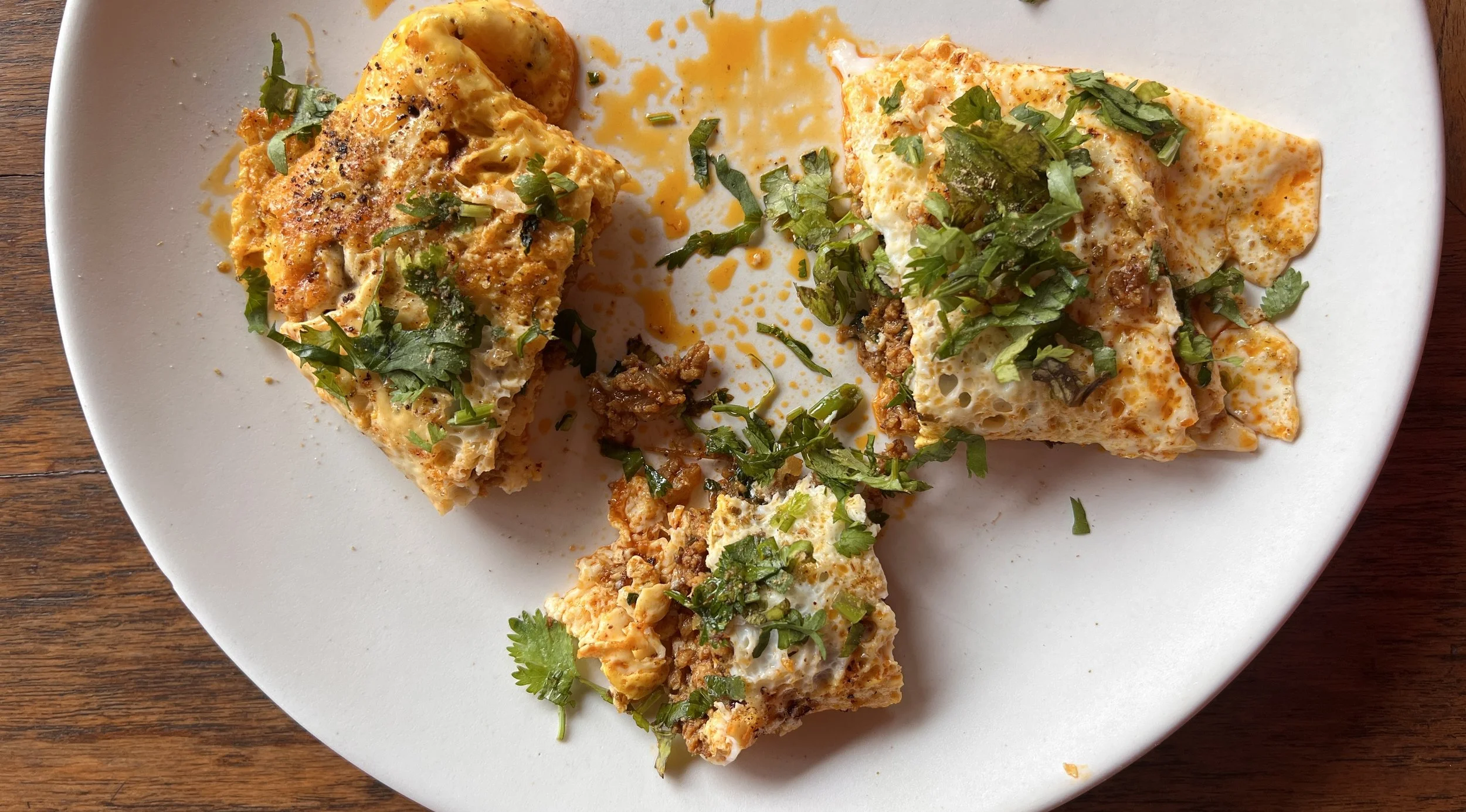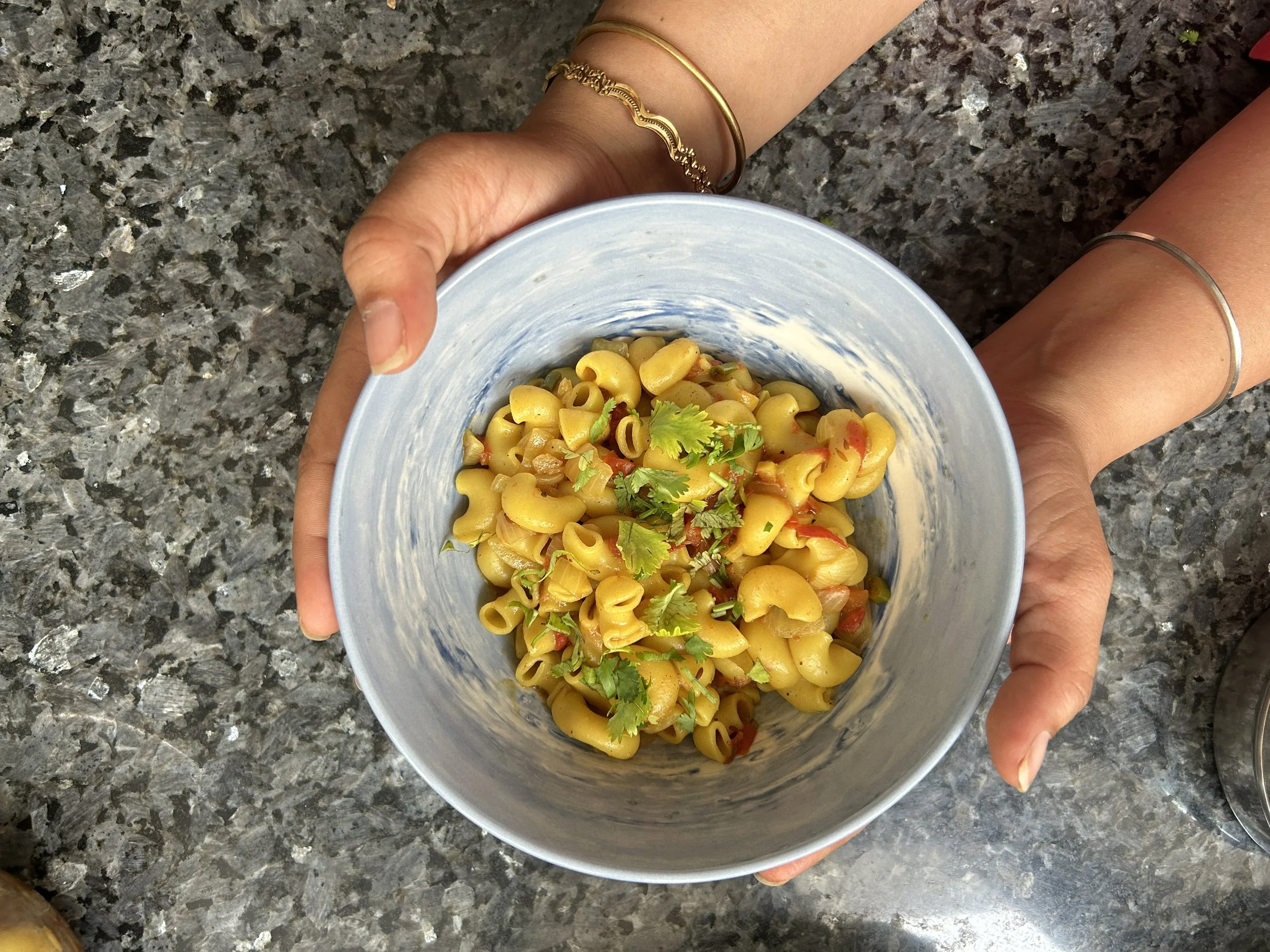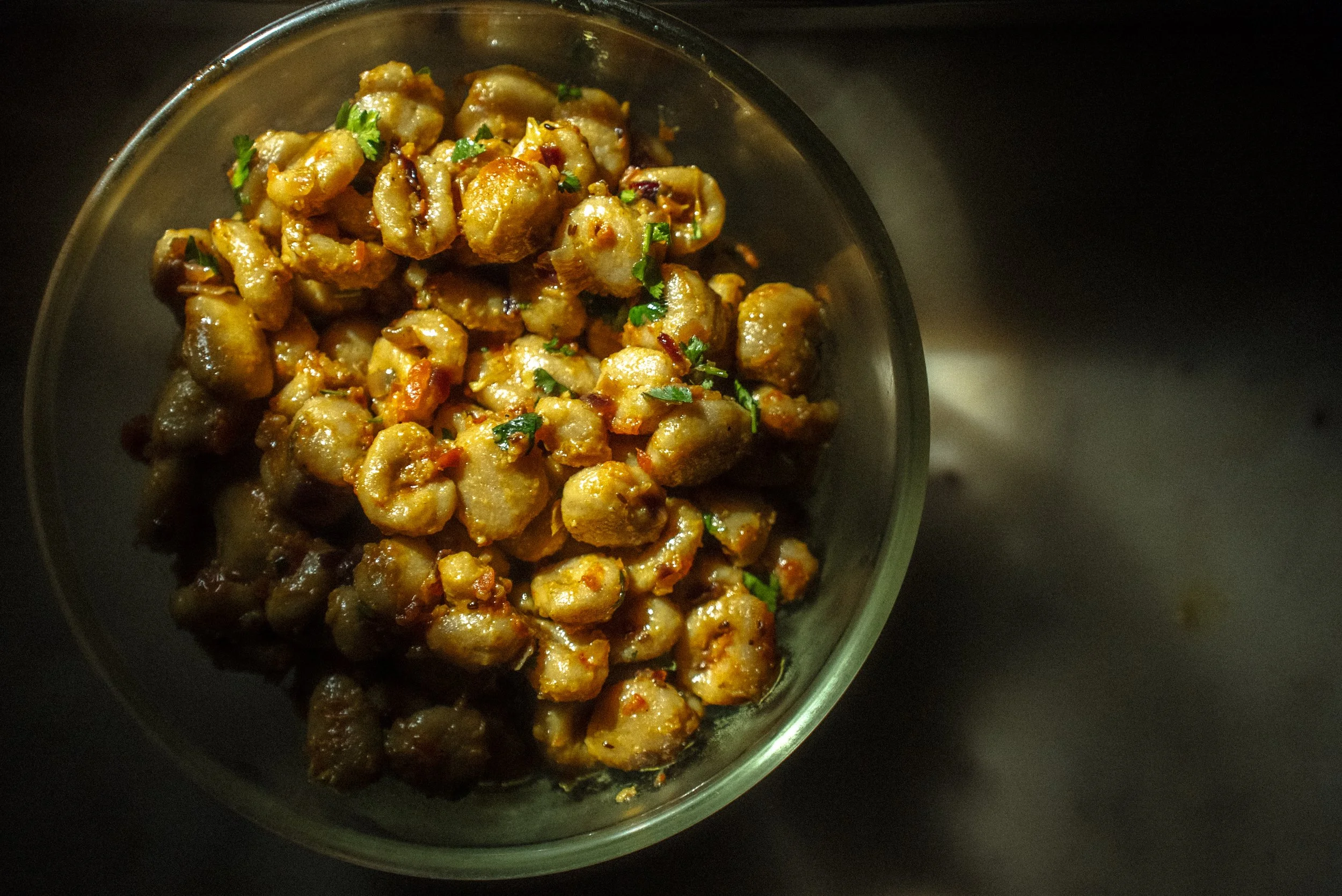A Beginner's Guide on How Not to Write a Restaurant Review

Joshua Muyiwa, former editor of BPB Bangalore, has eaten at his fair share of restaurants, and has some strong opinions on the art and science of restaurant reviewing.
Growing up in small-town Bangalore, eating out was a luxury; it was theatre. Everyone’s roles were pre-decided: patriarchs would grudgingly and grandly foot the bill, matriarchs would make sure that the brats didn’t rack up one that would induce a heart-attack. Placations and boasts like “that can be made at home for one-third the price, and will be much tastier,” were routinely heard. We were firmly indoctrinated with the creed: you don’t belong in these starchy restaurants.
Alas, the inevitability of teenage rebellion, the access to cash-money and the invasion of culture through the television and Internet meant that these establishments fell under the purview of our vices. While all our other nefarious activities were shadily done in the dark, indulging in the city’s growing restaurant culture, a vice that guaranteed equal parts guilt and pleasure, was one that could be publicly digested, discussed and debated. Unlike say, the specific district of Karnataka that grew your favourite strain of weed.
While the democratisation of taste in our times seems to promise the potential for ridiculously exciting conversation, the fact remains, a lot of it is simply noise. In all this highfalutin hullabaloo, how does one proficiently, professionally and judiciously write about restaurants, food and the culture around them? Over the past year, doggedly doing it for an online publication, I learned a few things – some, I attempted to implement in my own writing, and others that have become so much clearer in hindsight.
1. Don’t Tell Me, Show Me
Don’t quote the menu. Think of yourself as a thirteen-year-old boy describing his first sighting of a bra-strap, single eye glued to a keyhole, to his friends behind him. You too must describe everything you see, eat and do in the restaurant in the same glorious, giddy, gushing and gleeful fashion. Tell your readers of all the delights, the best view in the house, the smell of bergamot in the bathroom, the hue of the walls. No detail is ever too small, too irrelevant.
2. Trust, but Verify
The tyranny of deadlines, the burgeoning restaurant scene and the threat of eviction demand that reviewers be prolific. Don’t sacrifice legwork for a slice of glory. If the restaurant boasts that all its ingredients are “locally-sourced,” it wouldn’t kill you to verify the claim.
3. Give us the Juice
Don’t bore your reader; don’t talk down to him. Thinking of it as gabbing with your girls – the kernel of a well-told bit of gossip lies in providing all the juicy context. Let the meal just be the trigger; travel through your memories – similar dishes at other restaurants, your childhood Proustian moment, and anything else that might have been evoked by this meal. And yes, if the chicken is dry, don’t forget to mention it.
4. Never say Never
No meat, no vegetable, nothing must ever be taboo. You must try eating everything at least once. The job of the critic is to be voyeur; it is your job to take on the smells-like-socks durian fruit, so that your reader doesn’t have to. You don’t have a choice. You must.
5. Read the Manual
There are many moving parts to starting a restaurant, from conceptualising and executing a menu, to hiring efficient wait staff. Everything about making it a success is honest, hard and honourable labour. On the other hand, eating the food and writing about it is so much easier. Reviewing is fun. The best kind of fun, however, is the responsible kind; fun that isn’t had at somebody else’s expense. Never review a restaurant on opening night – that’s unfair to both reader and restaurant. And ideally, visit more than once to test for consistency.
6. Don’t Be A Freeloader
In the haste to gag bad, pompous reviewers, restaurants have foolishly decided to buy the enemy lunch, dinner and a couple of cocktails. Nobody benefits from this nexus. You want to have a modicum of credibility? Pay for your own goddamn meal. You can’t be clear-headed about someone who just picked up your tab.
7. Ask and You Shall Receive
Don’t know something about a particular cuisine? You don’t have to have eaten every dish from every cuisine in the world. But perhaps you can take along a friend who is familiar with the cuisine you are about to try. Make the review a conversation, a starter-kit.
8. Don’t be Negative Narayan
It is the critic’s prerogative to decipher, decode and discern the intent of the restaurant, and explain it to the reader, delivering the verdict on whether it actually accomplishes what it sets out to do. A review is not about trashing a place. While you are allowed to vent and rage, there had better be a very good reason for it.
9. Keep a Low Profile
To remain beyond reproach, a restaurant critic must always review anonymously. The value of a review drops significantly the minute you are given special treatment; your job is to provide your reader an accurate picture of what he can expect as he dines at this establishment as a regular, paying customer. There are no lengths too great to maintain anonymity. Ruth Reichl, former restaurant critic at The New York Times, famously donned elaborate disguises to maintain the integrity of her reviews.
Nothing equips you to be a better writer than reading some of the greats. In the podcast below, Chef Manu Chandra of Olive Beach talks about his favourite restaurant reviewer.
Joshua Muyiwa is a Bangalore-based poet, freelancer writer and former editor of Brown Paper Bag Bangalore. He also writes Gazing Outwards, a weekly column on the changing scapes of the city for the Bangalore Mirror.
Illustration by Minelli Pinto.
YOU MAY ALSO LIKE








